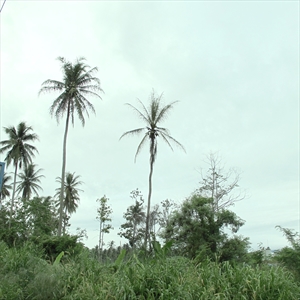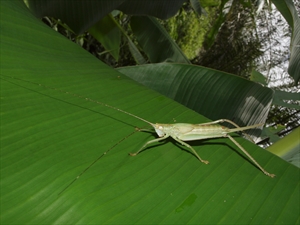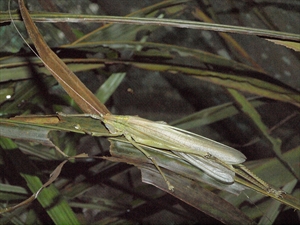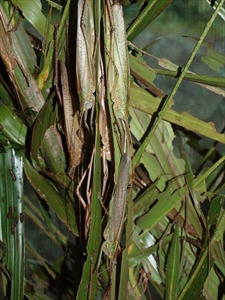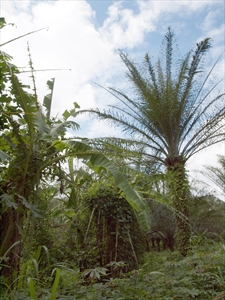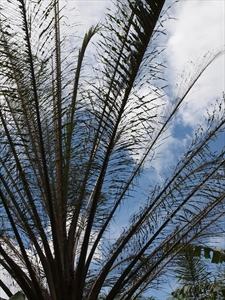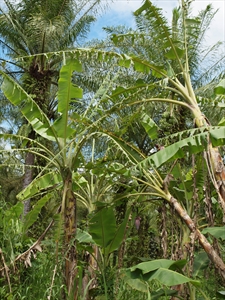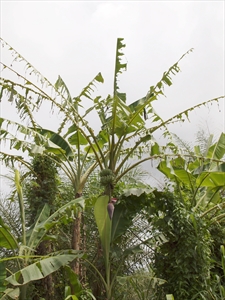- Narrow distribution. Indonesia, Oceania. On coconut, nipa, oil palm and sago; other plants attacked are banana, Heliconia, Pandanus, Ravenala (traveller's palm), and sugarcane. Occasionally, severe outbreaks occur.
- Eggs, mostly in soil; nymphs green or brown, adults 50-60 mm, antennae longer than body; either short or long wings; female with long ovipositor; flight poor; disperse by running or jumping.
- Outbreaks occur after droughts. The treehoppers feed at night, eating flowers, fruits, and leaves to the midrib.
- Natural enemies: parasitoid wasps are known.
- Cultural control: sticky bands or rake soil to expose eggs, but neither method seems practical.
- Chemical control: none recommended.
